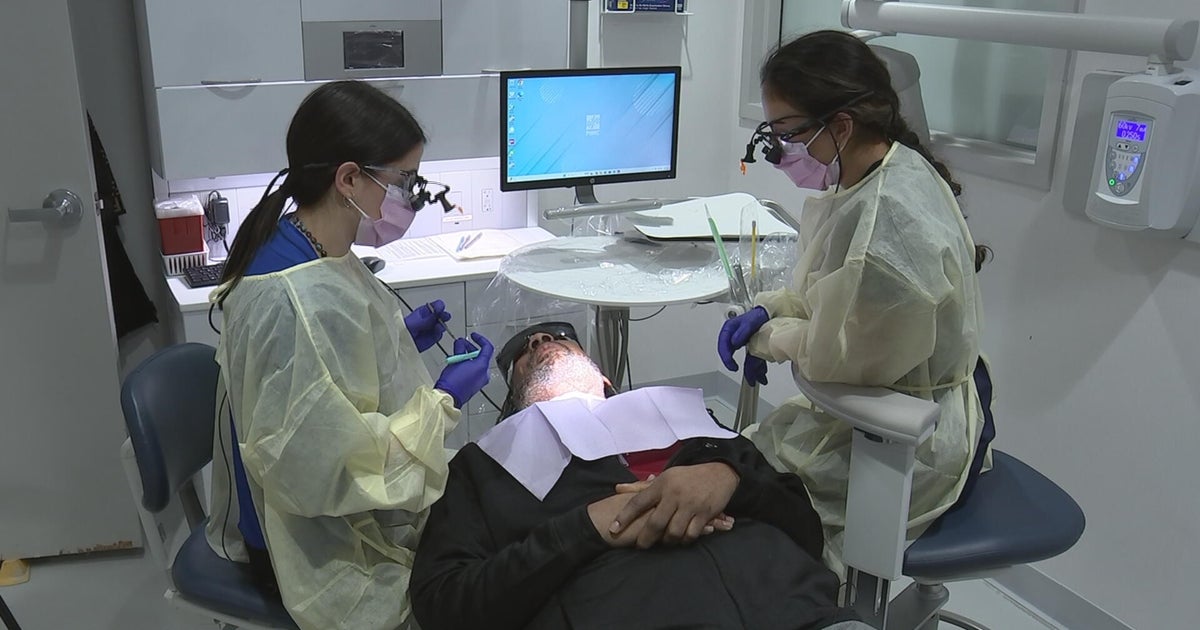Doctors At Cleveland Clinic Perform First Uterus Transplant
CLEVELAND (CBSNewYork/AP) -- Surgeons in Cleveland say they have performed the nation's first uterus transplant, a new frontier that aims to give women who lack wombs a chance at pregnancy.
In a statement Thursday, the Cleveland Clinic said the nine-hour surgery was performed a day earlier on a 26-year-old woman, using a uterus from a deceased donor.
The recipient received the womb from a deceased donor and is reportedly in stable condition, CBS2's Scott Rapoport reports.
"It offers the opportunity to have a baby. Which clearly is very special for many women," Dr. Tara Shirazian, a gynecological surgeon at NYU Langone Medical Center told CBS2.
She said uterine factor infertility affects thousands of women worldwide who are born without a uterus, have lost their uterus, or have a uterus that no longer functions.
For these women, the prospect of a uterus transplant could offer a ray of hope.
"It can be very important to women who have no options, no opportunities to have children on their own," Shirazian said.
The procedure is part of a clinical trial. Doctors at the Cleveland Clinic said they will perform 10 such procedures on women with UFI.
"Encouraging. Novel. It's always good to have more options," Shirazian said.
Other countries have tried womb transplants -- Sweden reported the first successful birth in 2014, with a total of five healthy babies so far. Doctors there say the still experimental treatment might be an alternative for some of the thousands of women unable to have children because they were born without a uterus or lost it to disease.
Others have questioned whether such an extreme step would be a realistic option for many women. It's fraught with medical risk, including rejection of the transplant and having to take potent immune-suppressing drugs for a transplant that, unlike patients who receive a donated kidney or heart, isn't life-saving.
The Cleveland Clinic's Dr. Andreas Tzakis said the risks aren't greater than those for other transplants but is considered life-enhancing, like transplants of the face or hand.
Removing a uterus from a deceased donor requires more than a normal hysterectomy, as the major arteries also must be removed. The womb and blood vessels are sewn inside the recipient's pelvis. Before closing the abdomen, surgeons check for good blood flow and that the attachment to the ligaments is strong enough to maintain a pregnancy.
If a woman is approved for a transplant in the study, she would first have to have eggs removed from her ovaries, like is done for in vitro fertilization, and then freeze the embryos. Those could be implanted only 12 months after the transplant heals, if it's successful.
The hospital said it would attempt transplants in women with what's called uterine factor infertility, meaning they were born without a uterus or with uterine abnormalities that block pregnancy.
(TM and © Copyright 2016 CBS Radio Inc. and its relevant subsidiaries. CBS RADIO and EYE Logo TM and Copyright 2016 CBS Broadcasting Inc. Used under license. All Rights Reserved. This material may not be published, broadcast, rewritten, or redistributed. The Associated Press contributed to this report.)







